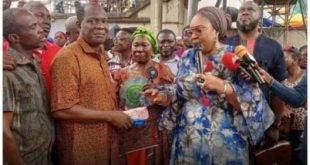
The Managing Editor of the Insight Newspaper, Kwasi Pratt Jnr has alleged the mistreatment of passengers at the Kotoka International Airport in the name of the government’s Gold-for-Oil policy.
According to the veteran journalist, he has received multiple reports of personal ornaments of passengers such as rings and bangles being confiscated by officials at the airport.
“I’ve received three complaints and the last one was from a Ghanaian living in China. He had visited the country and was returning to China. When he got to the airport, his wedding ring and a bangle he was wearing were seized. When he raised questions, he was told ‘Haven’t you heard about the Gold-for-Oil policy? We are taking gold to buy oil,” he narrated on the Tuesday, March 14, 2023, edition of Peace FM’s morning show, Kokrokoo.
He stated that the passenger was issued an official document for the seizure of the ornaments.
“The man left the matter in the hands of his family and travelled to China. Meanwhile, they were issued a document indicating the ring has been confiscated and were asked to go to the National Bureau of Investigations.
“When they went to BNI, they were asked to speak to the director and the director asked that they seek the intervention of a lawyer,” he alleged.
About Gold-for-Oil
Vice President Mahamudu Bawumia, in November 2022, announced the government’s plan to undertake the gold-for-oil initiative. The deal was hinged on buying oil products with Ghana’s gold instead of the US dollar.
Dr Bawumia, in a post shared on Facebook, explained that the usage of gold to purchase oil would address Ghana’s dwindling foreign reserves as well as reduce demand for US dollars by oil importers.
“It will fundamentally change our balance of payments and significantly reduce the persistent depreciation of our currency,” the vice president earlier wrote.
Under the policy, the government believes that using gold to purchase oil products would also bring stability to the exchange rate market and ensure domestic oil operators do not solely depend on foreign exchange to import products.
 Choicenewsonline Your Choice Is Here
Choicenewsonline Your Choice Is Here



